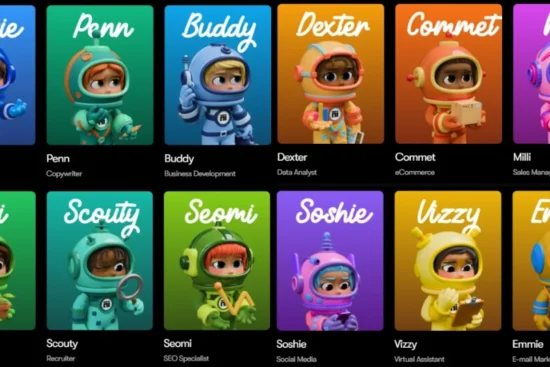
In the ever-evolving landscape of the digital realm, mastering the art of digital marketing has become an essential endeavor for businesses aiming to thrive and succeed. This ultimate guide unravels the intricacies of crafting and executing successful digital marketing campaigns, ensuring your brand’s resonance in the digital cosmos. Let’s delve into the strategies, tactics, and insights that pave the way for triumphant digital marketing endeavors.
Embracing the Digital Horizon
The digital landscape is akin to a sprawling universe, teeming with opportunities and challenges. In this guide, we traverse the multifaceted realm of digital marketing, equipping you with the insights needed to navigate this ever-shifting terrain.
Defining Digital Marketing Strategies
Crafting a compelling digital marketing strategy forms the cornerstone of every successful campaign. It’s imperative to align your goals, target audience, and resources with your overarching strategy.
In a study by HubSpot, it was found that businesses with a well-defined digital strategy are 2.5 times more likely to achieve significant increases in revenue. The strategy should encompass content marketing, social media engagement, paid advertising, and search engine optimization (SEO).
Unveiling the Power of Content Marketing
Content is the fuel that powers the digital engine. High-quality, engaging content not only educates but also captivates the audience. The Content Marketing Institute reports that content marketing generates three times more leads than outbound marketing, underlining its significance.
Producing a variety of content types such as blog posts, infographics, videos, and e-books not only caters to diverse audience preferences but also boosts your brand’s authority.
Navigating Social Media Dominance
Social media platforms have evolved into bustling marketplaces where brands interact directly with their customers. A study by Sprout Social revealed that 57% of consumers are more likely to buy from brands they follow on social media.
Strategically curate content that resonates with each platform’s audience, and actively engage with followers. Employ analytics tools to measure engagement and tweak your strategy accordingly.
Mastering the Art of Paid Advertising
Paid advertising empowers you to reach a targeted audience swiftly. Platforms like Google Ads and Facebook Ads allow you to tailor ads based on demographics, interests, and behavior.
Employ a mix of search, display, and social media advertising for a well-rounded approach. Regularly monitor campaigns, adjusting keywords and budgets to optimize results.
Unleashing the Potential of SEO
Search Engine Optimization (SEO) is the bedrock of a successful digital presence. A study by BrightEdge revealed that organic search drives 53.3% of website traffic.
Keyword research, on-page optimization, quality backlinks, and user experience optimization are crucial components of an effective SEO strategy. Regularly update your website with fresh, valuable content to improve rankings.
Exploring Email Marketing Excellence
Contrary to the belief that email is passé, it remains a potent tool for engaging customers. A study by DMA found that email has an average ROI of 3800%.
Craft personalized and segmented email campaigns, offering value and insights to your subscribers. A/B testing subject lines and content helps refine your approach.
Enhancing User Experience
In the digital age, user experience (UX) can make or break your brand. Google’s algorithm favors websites that provide exceptional user experiences.
Invest in responsive design, fast loading times, intuitive navigation, and mobile optimization. User-centric design enhances engagement, reduces bounce rates, and improves conversions.
Analytics and Data-Driven Insights

Data is the currency of the digital landscape. Tools like Google Analytics provide invaluable insights into user behavior, campaign performance, and website traffic.
Regularly analyze data to identify trends, areas for improvement, and campaign effectiveness. Data-driven decisions lead to refined strategies and improved outcomes.
Harnessing the Potential of Video Marketing
The rise of video consumption is unprecedented. Cisco predicts that by 2022, online videos will make up more than 82% of all consumer internet traffic.
Produce engaging video content that educates, entertains, and resonates with your audience. Platforms like YouTube, TikTok, and Instagram offer ample opportunities for video marketing.
Scaling with Influencer Collaborations
Influencers wield significant influence over their followers’ purchase decisions. A study by Linqia showed that 39% of marketers plan to increase their influencer marketing budgets.
Identify influencers whose values align with your brand. Collaborate on authentic, creative campaigns that introduce your products or services to their engaged audience.
Final Thoughts!
In the dynamic landscape of digital marketing, strategic ingenuity, and a deep understanding of your audience are paramount. This guide unraveled the intricate tapestry of successful digital marketing campaigns, from defining strategies to embracing the potential of influencer collaborations. Armed with these insights, you’re ready to embark on a journey of digital success.
Commonly Asked Questions
Q1: What is the role of SEO in digital marketing?
A1: SEO, or Search Engine Optimization, plays a pivotal role in digital marketing by enhancing your website’s visibility on search engines. It involves optimizing content, keywords, and technical aspects to improve organic search rankings and drive targeted traffic.
Q2: How can I measure the success of my digital marketing campaigns?
A2: Success can be measured through key performance indicators (KPIs) such as website traffic, conversion rates, click-through rates, social media engagement, and ROI. Utilize analytics tools to monitor these metrics and make informed adjustments.
Q3: Are paid advertising and organic marketing equally important?
A3: Both paid advertising and organic marketing have their merits. Paid ads offer immediate visibility, while organic marketing (such as SEO and content marketing) builds a sustainable, long-term presence. A balanced approach often yields optimal results.
Q4: What makes for compelling content marketing?
A4: Compelling content marketing involves understanding your audience’s pain points, aspirations, and preferences. Craft content that addresses these needs, offers solutions, and entertains, fostering a deeper connection with your audience.
Q5: How do I choose the right social media platforms for my brand?
A5: Select social media platforms based on your target audience’s preferences and demographics. Research which platforms align with your brand’s values and goals, and tailor your content to suit each platform’s unique vibe.












